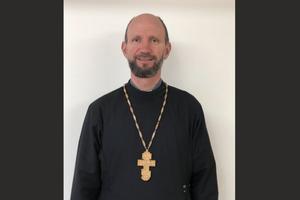Swiss Bishop: I No Longer Expect Anything Good From the Upcoming Synod
Bishop Marian Eleganti says the discussions around the Synod on Synodality focus on ‘the same old refrains reheated for the umpteenth time since the 1970s.’

“Boundless hypocrisy,” “confusion,” “instrumentalization of God” — Bishop Marian Eleganti, former auxiliary bishop of Chur in Switzerland, can scarcely find words harsh enough to express his unequivocal disapproval of the content of discussions surrounding the 2023 Synod on Synodality.
In a recent opinion column published by the Austrian online Catholic magazine Kath.net, Bishop Eleganti gave a long critique of the upcoming Synod that has recently concluded its diocesan phase to enter the continental phase, which is due to run until March 2023.
A popular and emblematic figure of the last three World Youth Days in Madrid, Brazil and Krakow, Bishop Eleganti was the Youth Bishop of the Swiss Bishops’ Conference for the German-speaking region of Switzerland between 2011 and 2018. He reportedly resigned due to disagreements with Swiss bishops over the orientations of the global Youth Synod which was held the same year.
Indeed, Bishop Eleganti’s outspokenness and orthodox stances have often led to him being shunned by his peers. The Benedictine missionary, who was abbot of the Abbey of St. Otmarsberg from 1999 to 2009, also contributed to the launching of the first World Meeting of Families in German-speaking Switzerland in 2019.
“The Church was not on the wrong track for 2,000 years and in need to be enlightened and corrected by a synodal process in the 21st century,” Bishop Eleganti wrote in his column, regretting that instead of addressing synodality as a new modus operandi in the Church, the discussion instead concentrates on “all the same refrains reheated for the umpteenth time since the 1970s: democracy, participation, involvement in power, women in all offices, diaconate or priesthood for women; revision of sexual morality regarding extramarital sex, remarriage and homosexuality, abandoning priest-centeredness in liturgy, etc.”
Old Wine in New Bottles
“The proposals that have been repeatedly put forward are poured over and over again into new bottles on which the labels ‘Listening,’ ‘Inclusivity,’ ‘Welcoming,’ ‘Diversity,’ ‘Equality’ are now stuck in a kind of marketing campaign that sells yesterday’s news as the latest news […]” he said. “They are all nice-sounding, emotionally positive terms, but they are empty phrases in relation to the truth.”
It is precisely the kind of relationship to God that is conveyed by these concepts that the Swiss bishop challenged — that of an “all-inclusive love which approves and blesses everything that people do because all are children of God,” a God that then stops to be the “truth and justice” that “exclude error and sin.”
Recalling that teachings of the Church — including those regarding married life and sexuality — are “unchangeable because they are true,” he stated that changes could be expected only in the communication of the faith, not in its doctrine. “Historically, innovations in the faith were always heresies that led to new divisions,” he said.
“We have forgotten that the Church is a ‘teaching’ Church (ecclesia docens), a ‘mater et magistra,’ ‘mother and teacher’ of truth, morality and faith — not a sleepwalker to be taken by the hand by the spirit of the age.”
For him, “To constantly talk about the Holy Spirit and to claim him for oneself is nothing but propaganda, (self) deception, and basically an instrumentalization of God.”
Predetermined Outcome
Another central aspect of his criticism is the unfavorable context for proper discernment through the Holy Spirit, who is supposed to be involved in a synodal process.
“This [synodal process] has nothing to do with a Spirit-filled process of reform,” he continued. “It is nothing more than the inner-Church politicization of these topics in contrast to the discernment of the Spirit, which is not even being undertaken in this regard or has been already undertaken and concluded, like in the case of women’s priesthood.”
“Discerning, however, only appears to happen because the agendas have been set from the beginning and are now to be advanced universally […]” he claimed.
Denouncing a “boundless hypocrisy,” he concluded by saying he does not “expect anything good from the upcoming synod.”
“I just don’t trust it anymore. The confusion that the Synods have already instigated since 2014 is unmistakable and makes me pessimistic about the discernment of the Spirit at these events.”
- Keywords:
- synod on synodality
- bishop marian eleganti
















